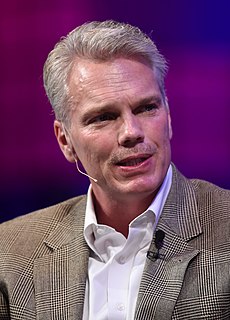A Quote by Jack Welch
Without doubt, there are lots of ways to measure the pulse of a business. But if you have employee engagement, customer satisfaction, and cash flow right, you can be sure your company is healthy and on the way to winning.
Related Quotes
Too often we measure everything and understand nothing. The three most important things you need to measure in a business are customer satisfaction, employee satisfaction, and cash flow. If you’re growing customer satisfaction, your global market share is sure to grow, too. Employee satisfaction gets you productivity, quality, pride, and creativity. And cash flow is the pulse—the key vital sign of a company.
There are only three measurements that tell you nearly everything you need to know about your organization's overall performance: employee engagement, customer satisfaction, and cash flow...It goes without saying that no company, small or large, can win over the long run without energized employees who believe in the mission and understand how to achieve it.
Your typical business just measures the metrics that have to do with the profitability of the business one way or another. But you can have metrics that measure employee happiness and the morale. You can also do direct customer surveys; you can track it over time. You can do supplier satisfaction scores as well.
While our managers debated what steps to take to address the sales and cash-flow crisis, I began to lead week-long employee seminars in what we called Philosophies. We'd take a busload at a time to places like Yosemite or the Marin Headlands above San Francisco, camp out, and gather under the trees to talk. The goal was to teach every employee in the company our business and environmental ethics and values.
If your cash is about to run out, you have to cut your cash flow. CEOs have to make those decisions and live with them however painful they may be. You have to act and act now; and act in the best interest of the company as a whole, even if it means that some people in the company who are your best friends have to work somewhere else.
Customer-driven innovation was at the core of Intuit's first product, 'Quicken,' and it continues to guide us as we look to solve new problems in areas like mobile payments. Products like Intuit 'GoPayment' and the IntuitPayment Network are helping small businesses get paid faster, keeping cash flow strong and their business healthy.
Profits are related to customer retention. Customer retention is related to employee retention. Employee retention may or may not be related to benefits, but benefits could be part of the package that causes people to stay and -- by the way -- engage in discretionary effort. .. If you go into any organization that's customer-facing, you can tell in five minutes when the employees are feeling abused. They retaliate on the customers.
































